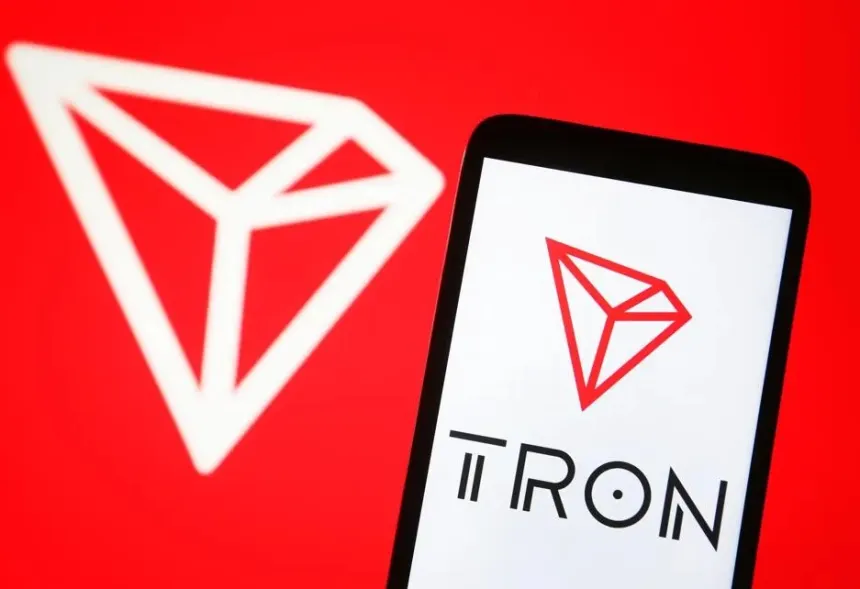In a significant move signaling the growing ambition of crypto firms to enter mainstream financial markets, Tron, a blockchain platform founded by controversial entrepreneur Justin Sun, is reportedly preparing to go public. Known for his bombastic personality, high-profile endorsements, and staunch support for former U.S. President Donald Trump, Sun has long been a polarizing figure in the world of digital currencies. Now, with Tron’s rumored plans to list on a public exchange, the crypto community is watching closely as a new chapter unfolds—one that could reshape how decentralized platforms interact with regulatory and financial institutions.
The Rise of Tron and Justin Sun
Founded in 2017, Tron quickly positioned itself as a major player in the decentralized internet ecosystem. Its blockchain protocol was designed to host decentralized applications (dApps) and facilitate content sharing without reliance on centralized platforms like YouTube or Apple. In a relatively short span, Tron acquired BitTorrent, one of the most widely used peer-to-peer file-sharing platforms, a move that bolstered its reputation and market reach.
At the helm of this rapid rise was Justin Sun—a tech-savvy marketer who deftly used social media, celebrity endorsements, and political alliances to elevate Tron’s profile. Sun made headlines with his record-breaking $4.6 million lunch bid to dine with legendary investor Warren Buffett in 2019, only to cancel the meeting under murky circumstances. Critics accused him of using such events more for publicity than substance, but few could deny the results: Tron gained massive visibility, particularly in Asian and North American markets.
Pro-Trump Politics in a Blockchain World
Justin Sun’s public support for Donald Trump adds another layer of complexity to Tron’s emerging narrative. Sun has frequently praised Trump’s deregulatory policies, especially regarding financial markets and tech innovation. This political alignment has raised eyebrows, especially given the traditionally libertarian and anti-establishment ethos of the crypto community. However, Sun’s support for Trump appears to be more than symbolic; he has reportedly attended several pro-Trump fundraising events and has been photographed with key figures in Trump’s political circle.
The implications of this political association are significant. In an era when blockchain projects face intense scrutiny from U.S. regulators like the Securities and Exchange Commission (SEC) and the Commodity Futures Trading Commission (CFTC), having allies—or at least perceived sympathies—with future policymakers could play a strategic role. With Trump seeking a return to the presidency in 2024 and vowing to eliminate what he calls the “war on crypto,” Sun’s calculated proximity to Trump may be both ideological and tactical.
IPO Plans and Market Reactions
News of Tron’s interest in going public has ignited debate within financial and crypto circles. Though no official timeline or exchange listing has been confirmed, insiders say Tron is exploring multiple jurisdictions, including Hong Kong, Singapore, and potentially even the United States, depending on regulatory feasibility. Such a move would place Tron among a small group of blockchain companies that have crossed into traditional capital markets.
Analysts argue that the public offering could provide Tron with access to billions in institutional capital and formalize its business operations under stricter financial disclosure requirements. This shift might increase investor confidence and broaden the platform’s appeal to traditional finance.
However, the risks are just as notable. Tron’s network has frequently been criticized for hosting high-risk DeFi (Decentralized Finance) projects, some of which have been linked to scams and rug-pulls. Additionally, Sun himself has faced legal scrutiny. In 2023, the SEC charged him with fraud and market manipulation in connection with the unregistered offer and sale of crypto asset securities TRX and BTT. Though Sun has denied any wrongdoing, these ongoing legal issues could complicate Tron’s IPO ambitions.
Regulatory Hurdles and Strategic Maneuvering
The regulatory environment for cryptocurrencies remains complex and inconsistent across jurisdictions. While some countries like El Salvador have embraced crypto openly, others such as the United States and China have taken a much more restrictive approach. Sun’s maneuvering—relocating operations, changing legal domiciles, and shifting strategic focuses—suggests a company trying to hedge its risks while maximizing global influence.
Should Tron go public in a more crypto-friendly jurisdiction like Hong Kong, it would mark a major win for the city’s ambition to become a global Web3 hub. The Hong Kong Monetary Authority and the Securities and Futures Commission have recently introduced frameworks to support digital asset innovation. However, choosing a venue outside the U.S. could limit Tron’s access to major American investors and deepen suspicions among regulators.
Furthermore, the SEC’s aggressive posture under Chairman Gary Gensler has made many in the crypto industry wary of attempting U.S.-based IPOs. If Trump were to return to office, there could be a seismic shift in how these projects are treated, making Sun’s Trump connection even more relevant.
The Bigger Picture for the Crypto Industry
Tron’s potential IPO comes at a pivotal time for the global crypto industry. Following the collapse of high-profile firms like FTX and the subsequent “crypto winter,” trust in blockchain projects has eroded significantly. An IPO from a major player like Tron could signal a return of legitimacy and confidence—if it’s executed transparently and responsibly.
Moreover, the move could encourage other large crypto platforms to follow suit. Coinbase, one of the few blockchain companies to have gone public, saw initial success but has since faced challenges related to regulatory pushback and market volatility. Tron’s experience could either pave a smoother path or serve as a cautionary tale.
Conclusion
Tron’s journey from decentralized entertainment protocol to a potential publicly traded company marks a critical moment in the evolution of the crypto sector. With its flamboyant founder, a controversial political alliance, and a history filled with both innovation and controversy, Tron encapsulates the complexities and contradictions of the blockchain era.
As Justin Sun steers the platform toward the public markets, the stakes have never been higher—for Tron, its investors, and the broader crypto ecosystem. The outcome will likely serve as a litmus test for whether blockchain-based businesses can truly integrate with the traditional financial world or whether their disruptive roots will continue to keep them at arm’s length.










